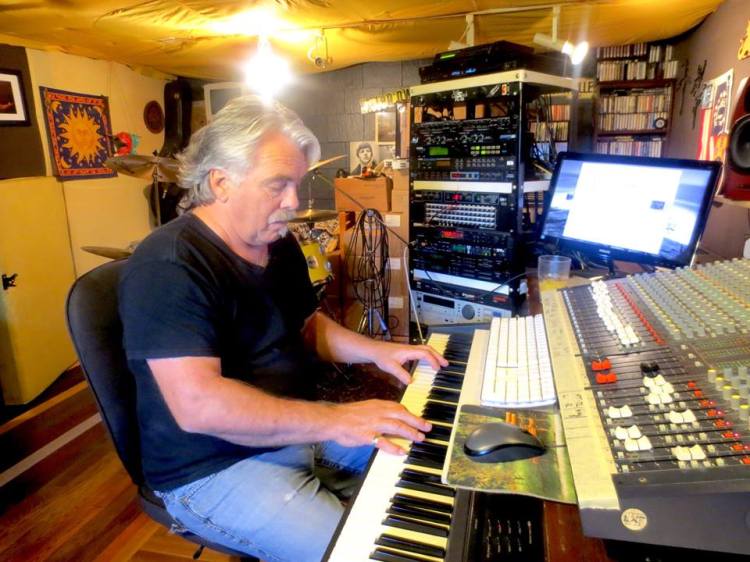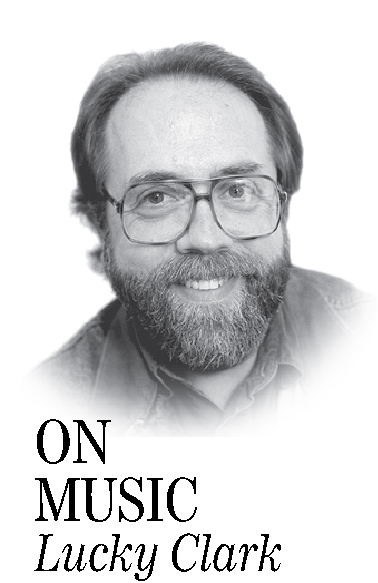I first became aware of a Canadian band called Klaatu (named for the peace emissary from outer space in the 1951 movie, “The Day The Earth Stood Still”) when their self-titled album came out in 1976. My collage friends and I were sure that this was the Beatles recording new music under that strange name, subsequently I picked up “Hope” in ’77, “Sir Army Suit” in ’78, “Endangered Species” in ’80 and “Magentalane” in ’81.
All five albums are still in my vinyl collection and held in the highest regard, so when I discovered that drummer Terry Draper was releasing a new solo album (his 17th), “Lost,” last month, I put in a request for a conversation with him on Dec. 21. When reached at his Hamilton, Ontario, Canada home, I had so many questions about his original band as well as what his subsequent solo career was like that I didn’t really know where to begin.
Q: In setting this phone chat up I told you that Klaatu was a huge influence on my musical growth, but I don’t want to dwell on that band too much other than it cemented my appreciation of progressive rock.
Draper: Well, it was certainly some formative years for me.
Q: How old were you when you were with Klaatu?
Draper: Well, I started playing in the bands when I was like 14, in 1965. John Woloschuk was in that band, J.P. and the Five Good Reasons. John and I started writing together in the late ’60s. In 1970/71 we formed a band called Mudcow. (pause) Don’t ask, I don’t know why we chose that name (chuckle). But I remember meeting a fellow on the road in 1968, at a Battle of the Bands. His name was Dee Long. He was in a band called The Polychromatic Experiment, and he was a mammoth guitar player. So when John and I formed Mudcow I hunted Dee down and asked him if he wanted to be in a band that was going to do all originals, in fact, we played a couple of Klaatu tunes: “Dear Christine,” I think and “Anus of Uranus.”
Q: And Mudcow was a precursor to Klaatu?
Draper: When Mudcow (broke up) John and Dee reformed a year or two later, because John met Terry Brown (producer of Rush, another Canadian band) and did a couple of songs. They were using session drummers and it was hit or miss. John and Dee realized they wanted some eclectic drumming and called me, and off we went. That’s a concise history (laughter).
Q: It certainly is. It sums up everything perfectly.
Draper: Yeah, pretty much. And then we started making these Klaatu records. The first album took three years, because we all had regular jobs. We got together during down time, generally in the middle of the night, and we made the music we wanted to hear not necessarily the music we wanted to make. This was during the beginning of the disco era that we were making that first Klaatu album, so radio wasn’t that friendly, in my opinion. I was very much into prog rock at the time, listening to Pink Floyd and Genesis and King Crimson and Moody Blues, ELP, etc. The radio was playing “Shake Your Booty.” So it was an unfriendly environment to make what I would call pseudo-psychedelic-symphonic pop rock, but we forged ahead.
Q: You three certainly did create a string of, in my humble opinion, great albums that still sound exciting and fresh decades later. Now your most recent solo album, “Lost,” to me sounds like Klaatu-Part 2, but that’s a tad trite and cliché, now that I think about it.
Draper: Possibly, I mean I find this latest album that I’ve recorded is possibly the quirkiest of the bunch. It has the oddest collection of songs; there’s not a radio-friendly song on it, in my opinion. Most of it is rather eclectic, from songs like “The Sun Never Sets (on the British Empire)” where I have this fellow narrate the song in a voice like a young Winston Churchill.
The choruses are kind of like a Hollies/Kinks thing. Here’s the bottom line, Lucky: if I can entertain myself, there’s a good chance I can entertain other people. So it’s really up to me to keep myself amused (chuckle). I do that by visiting different genres of music. There’s another song on this album called “The Sultan’s Dream” where I investigated Ottoman war marches and sing about family and ancestry and stuff. I watched this documentary on the Ottoman Empire, and it was really interesting, so I wrote a song about it.
Q: What’s the key factor to your songwriting, if I may ask?
Draper: Inspiration is everything. I rarely pick up the pen and start writing unless I have a concrete idea, like a verbal idea and some lyric or at least some subject matter. There’s another song on this album that’s a little odd: “Pangaea.” Pangaea is how all of Earth’s land was one continent at one time. I wrote a song about that using it as a metaphor for having all the people of Earth coming together and be one again. (Chuckle) So it’s kind of a stretch, but I had a lot of fun doing it, it’s got a bit of prog rock going on.
Q: I’d like to end this chat by asking how, why, and when Klaatu called it quits.
Draper: Klaatu broke up in 1982, and this was five years after the world thought we were The Beatles. I was a little distressed and disappointed, because five years after having been “a Beatle”, this band, Klaatu, couldn’t get a gig, couldn’t get a record deal, the music business had turned its back on us. Possibly because they think we duped them with this rumor that, in fact, we were victims of. We didn’t start the rumor, we wanted to be anonymous so that we could be fabulously wealthy, make music and have private lives. Well, some of it worked out.
Q: How so?
Draper: We’re anonymous individually, that’s for sure, but our music still gets played from time to time. But when the band broke up I decided to quit the music business. It had turned its back on me, and I was turning my back on it. I never stopped making music. I have a nice recording studio in my house, and I’m still writing and recording and loving it. But I went back to construction work so I could make a real living. Then 15 years later I decided, “I’ve got a lot of songs here, I’m going to put out a CD,” so in 1997 I released “Light Years Later.” John and Dee actually played on one or two of the songs on that album, because (those songs) were candidates for the next Klaatu album that of course never happened.
Q: That would have been the one after “Magentalane”?
Draper: Would have been the one after “Magentalane,” yes.
Q: You sound a little bitter, but you also sound like you’re satisfied with where you are now.
Draper: Well, you know what, I guess I do sound a little bitter when I talk about it, but in retrospect, from today’s point of view, I look back and the demise of Klaatu was the best thing that ever happened to me.
Q: Really?!
Draper: Because I quit the music business and went back to the real world, I went back to work and made real money. I got married; I have two sons, and we have a nice big home. My wife is a retired teacher now, and we’ve had a very comfortable life and have travelled a lot of the world, and I can’t wait to get back out there. I’m hoping this pandemic ends soon. … There’s places I haven’t been yet. And not only that, but by not being in the music business kept the music sacred for me. I didn’t have to play songs I didn’t like; I didn’t have to perform and live in motels and hotels, and I got to do whatever I want to do. … I have complete musical freedom, and it’s lovely.
Lucky Clark has spent over 50 years writing about good music and the people who make it. He can be reached at luckyc@myfairpoint.net if you have any questions, comments or suggestions.
Comments are not available on this story.
Send questions/comments to the editors.



